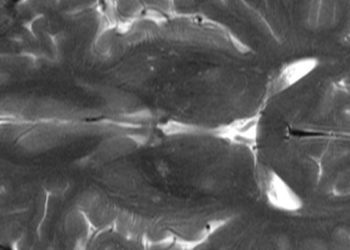Infusion with a monoclonal antibody decreases migraine frequency
1. In this randomized controlled trial, in patients diagnosed with migraine, it was found that administration of a monoclonal antibody against pituitary adenylate cyclase-activating polypeptide (PACAP), Lu AG09222, was associated with a reduction in migraines frequency.
2. The Lu AG09222 group experienced a higher incidence of adverse events compared to the placebo group, though no severe events.
Evidence Rating Level: 1 (Excellent)
Study Rundown: Migraine is a severely debilitating neurologic disorder affecting approximately 12.5% of the global population. Despite the availability of established preventative medications (i.e., propranolol and topiramate), these agents are often discontinued due to insufficient efficacy or intolerable side effects. Recent research has proposed that PACAP plays a significant role in migraine pathogenesis. Preclinical studies and a phase 1 clinical trial have indicated that Lu AG09222 may mitigate the physiologic changes leading to migraine onset. Consequently, this study aimed to assess the efficacy and safety profile of Lu AG09222 in migraine prevention. The results demonstrate that administration of Lu AG09222 significantly reduced migraine frequency compared to the placebo group. Participants in the Lu AG09222 group experienced a higher rate of adverse events than those in the placebo group, although no serious adverse outcomes were directly linked to the monoclonal antibody. However, the study’s limitations included a small sample size, the exclusion of participants with cardiovascular or other confounding health conditions, and the involvement of a predominantly White European patient population. Additionally, the study evaluated the outcomes of only a single dose of Lu AG09222 and had a short follow-up period of one month. Despite these limitations, the findings suggest that Lu AG09222 could effectively reduce migraine frequency in individuals who have not responded to other preventative medications.
Click here to read the study in NEJM
Relevant Reading: A New Antibody Treatment for Migraine
In-Depth [randomized controlled trial]: This phase two, randomized controlled trial investigated the efficacy and safety profile of Lu AG09222, a monoclonal antibody directed to PACAP, in migraine prevention for patients refractory from other therapies. Patients were included if they were 18 to 65 years old and were diagnosed with migraine, with or without aura or chronic migraine, as defined by the International Classification of Headache Disorders before the age of 50. Exclusion criteria included a diagnosis with a headache disorder other than migraine, previous PACAP-targeted antibody treatment, or a history of a significant pain disorder. Of the 237 participants randomized, 97 were assigned to the Lu AG09222 750 mg group and 94 to the placebo (0.9% normal saline) group. Additionally, 46 participants were assigned to a Lu AG09222 100 mg group to establish a foundation for future dose-finding studies. Each group received a one-time intravenous infusion of their assigned treatment and recorded their headache events in an electronic headache diary through the eight-week follow-up period. The primary outcome was the mean change of migraine days from baseline in the four weeks following the intervention. Participants in the Lu AG09222 750 mg group had a mean reduction of 6.2 days, significantly greater than the 4.2-day reduction observed in the placebo group (confidence interval [CI], -3.8 to -0.3; p=0.02). In addition, a higher proportion of participants in the Lu AG09222 750-mg group (32%) achieved at least a 50% reduction from their baseline migraine days compared to the placebo group (27%) (CI, 0.8 to 1.8). Overall, the incidence of adverse events was higher in the Lu AG09222 750 mg group (42%) compared to the placebo group (32%). However, there were no serious adverse events attributable to Lu AG09222 infusion. These findings suggest that intravenous infusion of Lu AG09222 may effectively prevent migraines in patients who are refractory from other standard therapies.
Image: PD
©2024 2 Minute Medicine, Inc. All rights reserved. No works may be reproduced without expressed written consent from 2 Minute Medicine, Inc. Inquire about licensing here. No article should be construed as medical advice and is not intended as such by the authors or by 2 Minute Medicine, Inc.







